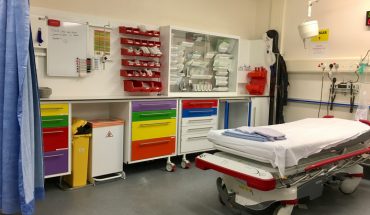UK dentists picking up the pieces from dental tourism boom: The popularity of travelling abroad for dental treatment is on the rise, a new survey by the British Dental Association (BDA) suggests. The evidence highlights the problems this has caused for patients and practices, with so many appointments unavailable during the last two years and the inevitable backlog which this has caused.
According to a survey of 1000 UK dentists in the UK:
The appeal of travelling abroad for dental treatment appears to be widespread, with 94% reporting that they had examined patients who had gone on such trips: however, the findings indicate that the lure of a quick fix may carry considerable risks. Of these dentists:
- 86% reported having treated cases that developed problems following treatment abroad. 87% identified crowns as the treatment most likely to require follow-up work, closely followed by implants at 85%.
- The highest single risk factor identified was failing or failed treatment (86%), closely followed by pain (76%), and poorly executed treatment (72%).
- Fixing the damage can be costly for patients and some dentists questioned whether the NHS should provide this care. Two-thirds of respondents (65%) said that it cost patients at least £500 to repair the damage done to their teeth, while over half (51%) reported that it was more than £1,000. One in five of these dentists said the cost exceeded £5,000. Over 40% (346 dentists) said the remedial treatment was provided by the NHS.
- Over half (56%) reported seeing cases in the past three years, with a fifth (20%) seeing cases during the pandemic.
84.6% state dental tourism is a growing trend. Cheaper costs were identified by 98% of all respondents as the lead factor influencing patients’ decisions to seek dental care abroad, while almost a third (31%) of those surveyed said that a perception of shorter waiting times was responsible. Many dentists highlighted the ubiquity of social media promotions touting the “perfect” smile.
93% of all dentists responding identified concerns around continuity of care, 79% were unhappy with the quality of care, 77% mentioned the difficulties associated with seeking redress or making a complaint, while 66% flagged concerns over communications between patients and practitioners.
Several dentists reported concerns about over-prepared teeth – where more of a tooth is removed than necessary – as well as ill-fitting crowns and implants that fell out. Others were worried that treatment proceeded despite having untreated gum disease, which was likely to increase the risk of crowns and implants failing, as well as being a major contributor to infection and pain.
Some dentists expressed alarm that patients had extensive work done to previously healthy teeth in “smile makeovers”, which would require a lifetime of costly maintenance, or could even lead to the loss of teeth and a need for dentures. One reported that a young man had 21 full crowns inappropriately placed to manage “what was clearly an orthodontic case to correct misaligned teeth.” Another said that they saw a patient with dental phobia who had 14 crowns placed under sedation, and who now needs four root canal treatments.
The NHS advises people to think carefully before booking any treatment abroad, and issues a list of warning signs, many of which have been echoed by the dentists who participated in the study. The dental regulator also advises people to be fully aware of what to expect and what risks are involved. BDA is calling on the authorities to provide genuinely proactive campaigns to ensure patients are aware of the potential risks.
British Dental Association chair, Eddie Crouch, said:
“Dentists are aware that many people are struggling to access care and may be tempted to go overseas for cut-price treatment.
“Patients need to provide informed consent for any treatment they have and be wary of a hard-sell, as the reality is rarely as simple as it appears on Instagram. Sadly, many UK dentists are now picking up the pieces when things go wrong.
“Complex courses of treatment typically require detailed preparation and a number of follow-up visits. Patients should be aware of the risks and alternatives to the treatment desired, and get advice on what they should do in the event of problems occurring when they return.
“The cost of follow-up treatment needs to be factored in. If there are complications, the initial price may not be such a bargain.
“We strongly advise people considering this to check a dentist’s qualifications and experience and whether they are insured if things go wrong.”
British Dental Association online survey of UK dentists – Fieldwork 8-28 February 2022. 1000 respondents. Unless otherwise stated data is from all respondents.
Have you examined or treated any patients that have travelled abroad for dental treatment?
Yes: 94.6% (944)
No: 5.6% (56)
When did you see the patient/s? (944 respondents who indicated they have seen a patient that travelled abroad for dental treatment)
During the pandemic 20.2% (191)
In the past 3 years 35.9% (339)
In the past 5 years 24% (227)
In the past 10 years 18.4% (174)
Don’t know/Don’t recall 1.38% (13)
What was the treatment for? (944 respondents)
Crowns: 86.5% (817)
Implants: 85% (803)
Veneers: 56% (532)
Cosmetic dentistry: 55% (524)
Teeth whitening: 12% (113)
Orthodontics: 5.9% (56)
Other General dentistry 18.2 (172)
Did any of your patients experience complications following their treatment abroad? (944 respondents)
Yes 86.2% (814)
No 7.5% (71)
Don’t know 6.3% (59)
Thinking about the last patient you saw who had treatment abroad and required remedial assistance on their return, what conditions or complications did they present with? Select all that apply (814 respondents who treated patients requiring remedial assistance)
Pain 76.4% (622)
Infection 70.0% (570)
Failing/failed treatment 86.4% (703)
Inappropriately planned treatment 71.6% (583)
Poorly executed treatment 72.5% (590)
None 0.4% (3)
Was the remedial treatment in the UK provided on an NHS or private basis? (814 respondents)
NHS 42.5% (346)
Private 57.5% (468)
Can you quantify the approximate cost to repair this damage? (814 respondents)
Less than £100 12.7% (103)
£100-£500 22.4% (182)
£500-£1000 13.9% (113)
£1000-2000 11.7% (95)
£2000-5000 17.4% (142)
More than £5000 22.0% (179)
What concerns if any do you have about people going abroad?
Continuity of care 93.5% (935)
Communications between patients and practitioners 65.8% (658)
Ability to complain/seek redress 77.0% (770)
Quality of care 79.4% (794)
Other (please specify): 15.9% (159)
In your view, is dental tourism a growing trend?
Yes 84.6% (846)
No 2.3% (23)
Don’t know 13.1% (131)
What factors do you think are influencing patients to seek care abroad? (Select all that apply)
Lower treatment costs 98.3% (983)
Shorter waiting times 31.2% (312)
Access to up-to-date technology 7.8% (78)
Access to quality treatment and care 6.3% (63)
Other (please specify): 19.9% (199)
199 cited other factors, with social media featuring prominently in responses.
- Gut microbiome could delay onset of type 1 diabetes - 3rd April 2025
- The da Vinci 5 Robot Is Set To Transform Bariatric Care: - 31st March 2025
- Beyond money: the hidden drivers fuelling child food insecurity - 31st March 2025






